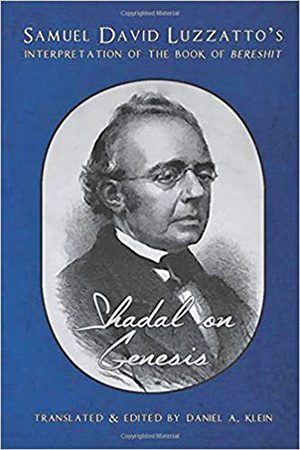
What Is the Meaning Of the Word ‘Mincha’?
In Biblical Hebrew, most nouns are derived from verbs. So when you see a noun and want to know what it originally meant, the first

In Biblical Hebrew, most nouns are derived from verbs. So when you see a noun and want to know what it originally meant, the first

This column will address the root “amar.” Am I so desperate for topics that I picked such a seemingly boring one? Please read the entire

Our subject is a word that appears only six times in Tanach, only in the book of Psalms, and only in the first verse each

Reviewing: “Shadal on Genesis” by Daniel Klein. Kodesh Press. 2019. Paperback. 617 pages. English. ISBN-13: 978-1947857308. Samuel David Luzzatto (1800-1865) was the preeminent Italian Jewish

Samuel 13:1 tells us that Saul was one year old when he began to reign: “ben shana Shaul be-malcho.” If you look at the Soncino,

Reviewing: “My Father’s Paradise,” by Ariel Sabar. Algonquin Books. 2008. English. Hardcover. 325 pages. ISBN-13: 978-1565124905. This was one of the most interesting books that

Herzl had not envisioned Hebrew as the language of the Jewish state. In 1896 he wrote: “Who amongst us has a sufficient acquaintance with Hebrew

As part of the Sukkot hoshanot we recite the request “Ani Ve-Ho Hoshiah Nah.” This phrase originates in a statement by R. Judah at Mishnah

We have all heard the story of this prayer and R. Amnon of Mainz in the 10th century. The story is found in the Or

This is a good time to discuss this all-important word. There are two issues involved: 1) What is the meaning of the root PLL? 2)

We have all recited this simple word thousands of times in our prayers. But what does it mean? To give you some background, it appears

This psalm begins: “la-menatzeach al ayelet ha-shachar mizmor le-David.” What is the meaning of “ayelet ha-shachar”? Rashi here gives four interpretations, and Radak gives five!